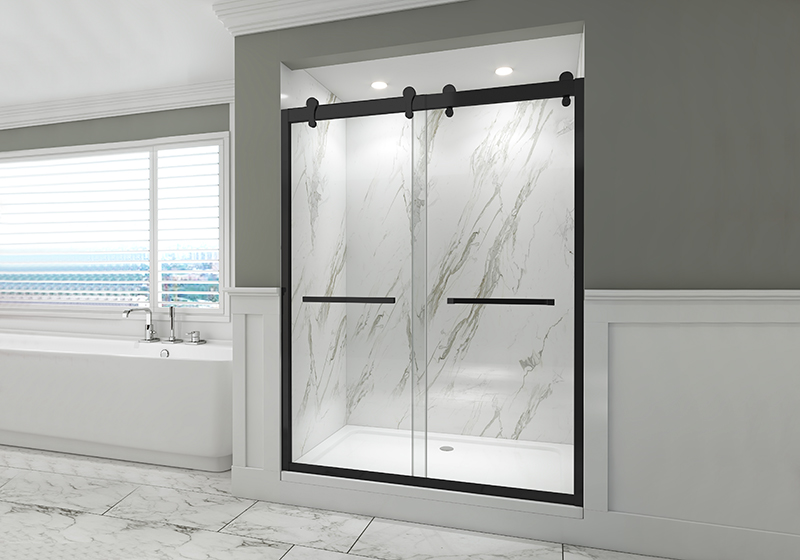The choice of material for the black frame shower enclosure can indeed impact the overall weight of the enclosure. Different materials have varying densities and weights, which can influence not only the installation process but also the compatibility with different wall structures. Here are considerations regarding the choice of material and its effects on weight and installation:
Aluminum:Aluminum is a lightweight material, making it suitable for applications where minimizing overall weight is important. This can be advantageous for ease of handling during installation and may be preferred for scenarios where wall structures have specific weight-bearing limitations.The lightweight nature of aluminum makes it suitable for various installation scenarios, including situations where the walls may not support heavy loads. It is particularly advantageous for wall structures that require a lighter touch.
Steel:Steel is denser and heavier compared to aluminum. While it provides a sturdy and robust frame, it contributes more weight to the overall enclosure. This can influence the installation process and may require additional considerations for structural support.When opting for a steel frame, it's essential to consider the load-bearing capacity of the walls and the floor. Steel frames may necessitate stronger support structures, and professional installation may be recommended to ensure proper weight distribution.
Stainless Steel:Stainless steel, while still relatively heavy compared to aluminum, offers a balance between strength and weight. It is generally lighter than traditional steel, making it a suitable option for those seeking a durable frame without excessive weight.Stainless steel is often chosen for its corrosion resistance in humid environments. During installation, it is important to assess the wall structure's ability to support the weight of the stainless steel frame, especially in areas prone to high humidity.

Powder-Coated Materials:The weight of powder-coated materials, such as powder-coated aluminum or steel, is influenced by the underlying material. The coating itself does not significantly impact the weight.While the powder coating enhances durability and aesthetics, the weight considerations align with the base material. Installers should assess the load-bearing capacity of the walls and floor based on the material used.
Anodized Aluminum:Similar to standard aluminum, anodized aluminum frames maintain a lightweight profile, contributing to easier handling during installation.Anodized aluminum is often chosen for its corrosion resistance. During installation, it is suitable for scenarios where a lighter frame is desired, and the wall structure supports a more lightweight material.
Composite Materials:Composite materials are designed to be lightweight while offering durability. They can be a suitable choice for those looking to minimize the overall weight of the shower enclosure.The lightweight nature of composite materials makes them versatile for various installation scenarios. However, it is important to ensure that the composite frame is compatible with the specific wall structure and installation requirements.




 English
English Deutsch
Deutsch
















